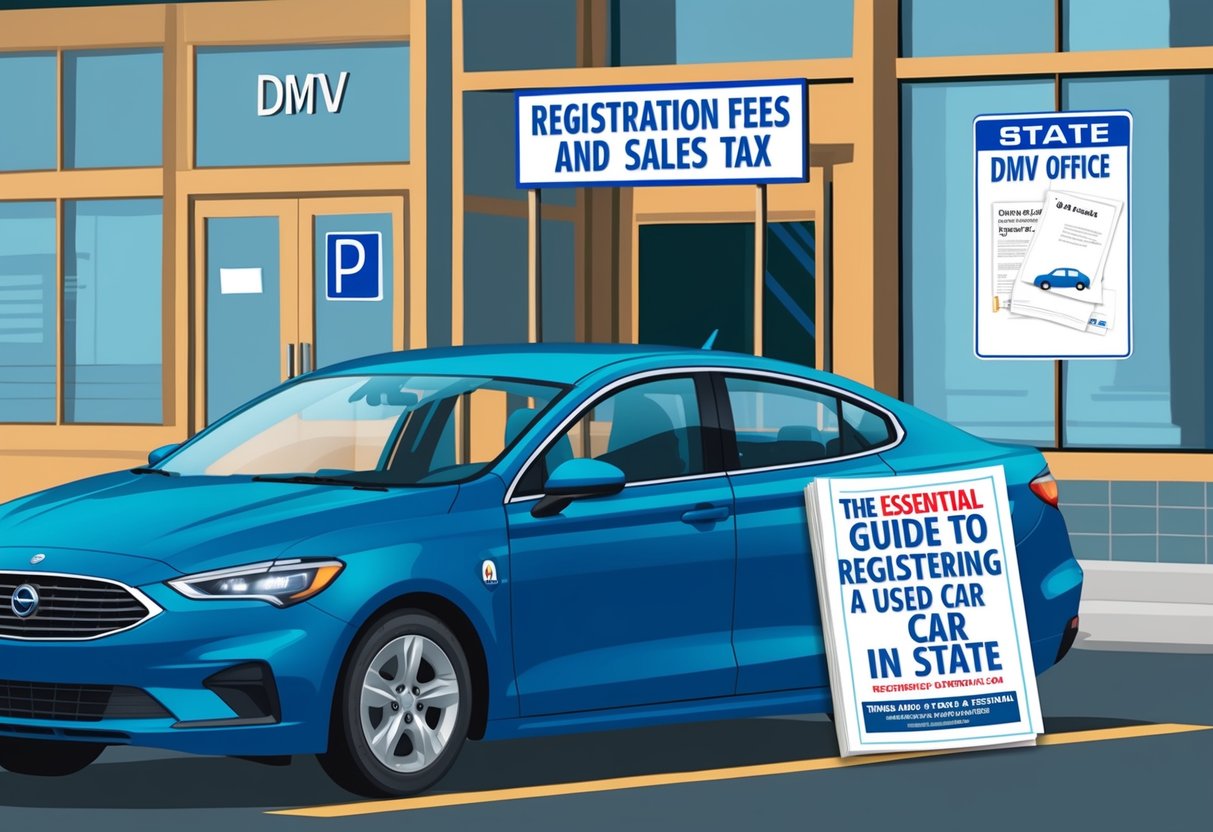
Understanding Registration Fees and Sales Tax

Registering a used car requires planning for several mandatory costs. Accurate estimates of registration fees and sales tax will help with smart budgeting and avoid registration delays.
Calculating Total Registration Costs
Registration fees for used cars depend on several factors, such as the vehicle’s age, weight, market value, and the specific regulations in each state. Some states use a flat fee for registration, while others calculate costs based on criteria like vehicle type and model year.
It is important to check your state’s Department of Motor Vehicles (DMV) website for an itemized breakdown. Many states also include additional charges like a title transfer fee, license plate fee, and processing fees.
These charges can add up, so reviewing a comprehensive guide to registration costs can give a clearer picture of what to expect. To avoid surprises, gather the year, make, model, and VIN of the car before starting the process.
Most DMVs provide fee calculators to estimate the total amount required. Knowing these costs in advance ensures a smoother experience and helps prevent late-payment penalties.
When and How to Pay Sales Tax
Sales tax must be paid when registering a used vehicle, and the rate depends on both the purchase price and the locality. In most cases, buyers pay sales tax directly at the DMV, though some states collect it at the point of sale if buying from a dealership.
Private sales typically require buyers to pay the sales tax themselves during registration. The method of calculation varies by state—some use the vehicle’s purchase price, while others may base the tax on fair market value.
Check for any trade-in credits or exemptions that may apply, which can reduce the taxable amount. Payment is usually required in full at the time of registration.
Be prepared to bring documentation, such as the bill of sale and title certificate, to ensure the transaction goes smoothly. For specifics, review guidance on typical new car fees or visit your DMV’s official site.
Securing Insurance for Your Used Car

Proper insurance is a critical step before registering any used car. Coverage requirements can differ from state to state, but drivers need to understand the required types and how proof of coverage impacts the registration process.
Required Insurance Coverage Types
Most states require liability insurance as a minimum to register a used car. Liability coverage pays for damages or injuries others suffer if the insured driver causes an accident.
This type of insurance is mandatory across almost all states and includes bodily injury liability and property damage liability. Some states also mandate additional coverage like personal injury protection (PIP) or uninsured/underinsured motorist coverage.
It’s important to review state-specific requirements before purchasing a policy. In Texas, for example, drivers must have at least the minimum liability limits, but buying more is recommended, especially if the vehicle is involved in a multi-car accident.
Review the insurance policy to ensure it meets or exceeds the minimum legal requirements for your state. Optional coverages such as collision and comprehensive can add extra protection for the used car by covering repairs not related to a collision or resulting from theft, fire, or weather damage.
While optional, these may be required by lenders if the used car is financed.
How Proof of Insurance Affects Registration
Proof of insurance is mandatory to register a used car in many states. During registration, applicants must present valid proof that the car is insured.
This may be in the form of an insurance ID card, policy paperwork, or a digital document from the insurer. The lack of valid proof can delay or prevent successful vehicle registration.
For instance, before obtaining new plates or registration for a used car in Texas, owners need to show evidence of the minimum required coverage as outlined by the Texas Department of Insurance. Most Department of Motor Vehicles (DMVs) will reject any application without current and state-compliant proof.
In most cases, the insurance must be issued in the same name as the vehicle owner and include the insured vehicle’s details, such as the VIN. Always check the DMV’s list of accepted proof documents to avoid issues on registration day.